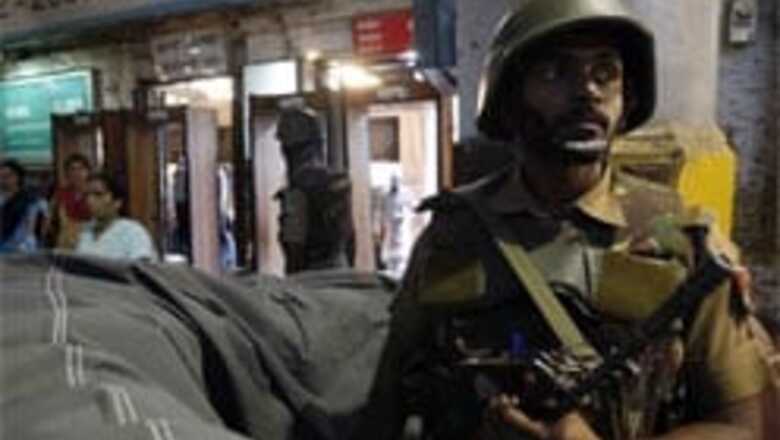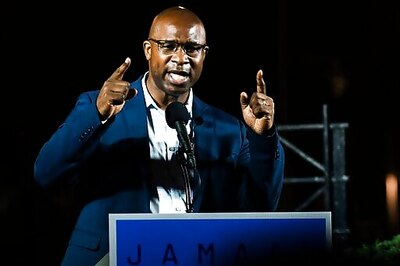
views
Washington: Several attackers may have survived the three-day siege of Mumbai that killed 212 people last week, analysts said on Thursday.
"I think there are more. My sources say (there were) at least 23 of the gunmen," said Farhana Ali, a former CIA and Rand Corp counterterrorism analyst and expert on militant networks.
Ali, who most recently visited India and Pakistan last month before the attacks, said her information came from Pakistan, but declined to further identify the source. "If that's true, that makes one wonder why we haven't seen more attacks. Are they lying low?" she said "I think they (Indian authorities) are bracing themselves for more," she said.
Ali spoke at a briefing for US government counterterrorism and military officials, and others.
It was sponsored by the Counterterrorism Foundation, which supports research and publication on terrorism issues.
Indian authorities have said 10 gunmen took part in the Mumbai attacks last week. But reports early in the attacks cited police as estimating there were 25 gunmen. Authorities captured one, who was interrogated, and killed nine.
Indian and US officials blame the attacks on Lashkar-e-Toiba (LeT), a Pakistan-based group that the United States in May designated a terrorist organization.
A US counterterrorism official told Reuters, "Is there a possibility that some LeT terrorists are still out there? Yes, but we have to wait and see because all of the information is not in yet." David Kilcullen, who has served as a senior counterterrorism adviser to US Gen David Petraeus and Secretary of State Condoleezza Rice, said he agreed that were probably more attackers. They equipped themselves with fake identification and wore Western clothes with clean-shaven faces, indicating they probably did not view the attack as a suicide operation, Kilcullen said. "The fact that they lost nine out of 10 identified attackers killed doesn't necessarily indicate that it was intended to have all those people dying," he said. "The Indians said there were 10 attackers, based on the fact that they captured one and killed nine -- you have to assume there are more out there," he said.
He noted, however, that there was no short-term follow-up attack on a target such as a hospital treating victims -- a characteristic of some Iraqi insurgent strikes. The fighters had high-level professional training, Kilcullen said. They entered the city by sea, launched diversionary strikes, and seized two hotels and a Jewish center, where they held off authorities and rampaged for three days. "A Seal team would have had trouble mounting this operation," Kilcullen said, referring to US Navy commandos regarded as among the most skilled special forces.




















Comments
0 comment